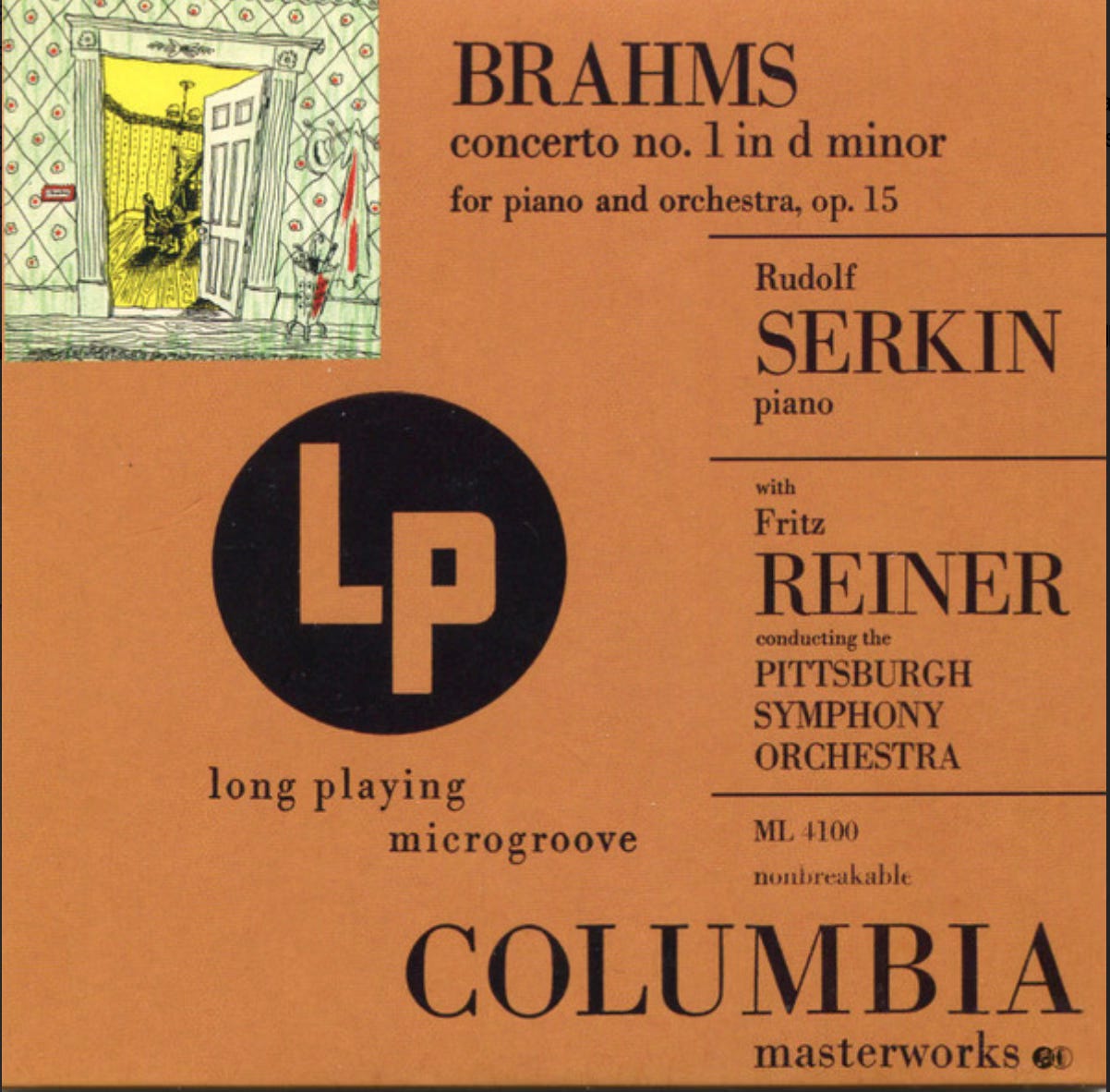Audition: Brahms - Piano Concerto No 1, Rudolf Serkin/Pittsburgh Orchestra/Reiner #Op15

Original release: 1947 Columbia (on 6 Shellac discs, later on LP)
This release shows the conditions of its creation: immediate post war birth, even in its current incarnation as a hi res download. The orchestras of Europe and America were weakened - depleted by service but gradually reconstituted by migration to the US. The recording technology was about to be transformed, 12 sides for the original set would be replaced with the introduction of the long playing records and finally Reiner Fritz Reiner (1888-1963), coming to the end of his ten year tenure at the Pittsburgh Orchestra, was about to move to the Metropolitan Opera and later the Chicago symphony to become a conductor of formidable standards.
Rudolf Serkin (1903-1991) was something of a prodigy and a remarkably able pianist, he fell into friendship with Adolf Busch (both emigres to the US) and was especially fruitful in chamber music. Early in his career he was regarded as a piano prodigy, as a soloist and a frequent concerto collaborator. His style was assertive and somewhat brusque in this recording - but with sure footed tonal control and an Apollonian facility to keep all the many moving parts on track.
On the face of it the recording is inconsistent. The Pittsburgh winds are wiry but too often not in step with each other. The strings too sound thin but are in better shape. And as often in this period some of the details of the score are lost by the engineers.
Serkin is bullish in the first movement - it’s exciting though, his ferocious attack is not exactly what we expect of Brahms, closer to Backhaus than Horowitz. By the end of the movement the piano sounds as though it’s been roughed up and this continues into the Adagio. The moments of charm aren’y savoured by conductor or soloist and I think it’s a pity. Given earlier recordings this may have disappointed some and refreshed others. I’m not a fan.
The middle movement has some gorgeous moments but Reiner doesn’t press them so the movement is slighter than it might have been. On the other hand Serkin’s chamber music credentials come to the fore in intimate dialogue with the wind principles..
I have the feeling the final movement was recorded on a different day. The piano sounds much sweeter and in tune. The orchestral players seem more secure too. It’s a feisty and virtuosic performance from Serkin and at pace. I felt exhausted and exhilarated at the same time.
So this recording variable but never uncomfortable. It shows that both soloist and conductor have clear assertive view of the piece. It is not the only recording by Serkin - there are four more on my list!
Performance 8
Interpretation 9 or 10 ( depending on how you like the finale)
Recording 7
Comments